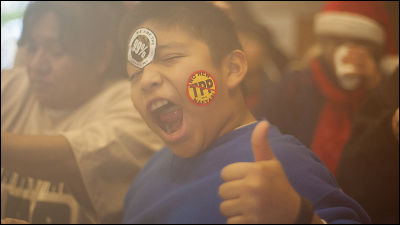What on earth is "TPP"? If you read materials from the National Strategy Office, you can see the problem

ByLaverrue
"I often listen to the word TPP, but I do not really understand it." "For people who are chasing because TPP is topics in newspapers, TV, and the net, but do not really know the basic part of what it is in the first place" What is TPP? From the basic part of the basic part, "TPP backside" not reported in the media, and "TPP's true problem and solution path" will be explained in order.
◆ In the first place, how did you prepare "TPP" in the first place?
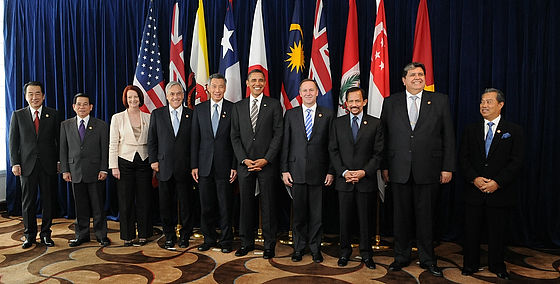
ByGobierno de Chile
Regarding TPP, the "National Strategy Office" of the Japanese government on the official website actually publishes comparatively well-documented data at the end of October.
National Strategy Office - Policy - Comprehensive Economic Partnership
http://www.npu.go.jp/policy/policy08/index.html
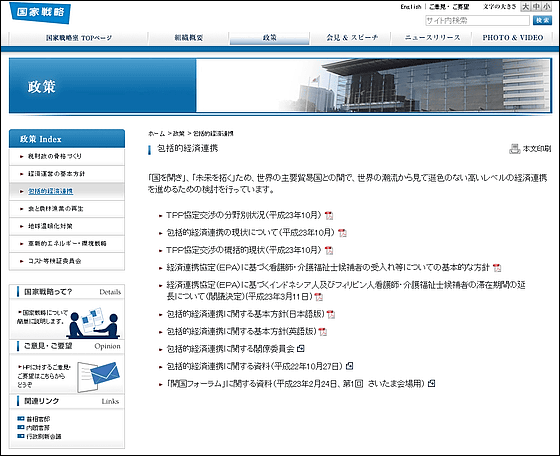
Official website PDF file in the above page "On the current state of comprehensive economic partnership (October 2011)"On the 7th page, there is a figure that shows a TPP that is easy to understand.
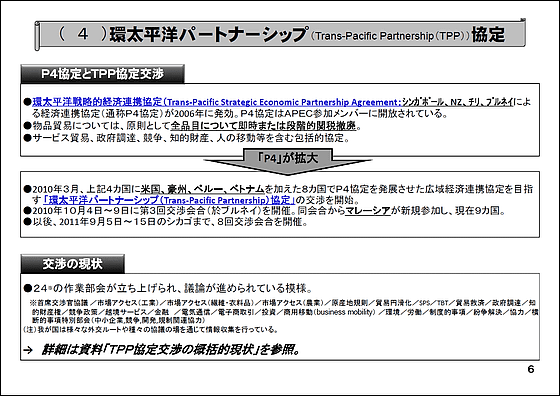
Sorted by year, month, day order is as follows.
2006: Pacific Rim Pacific Strategic Economic Partnership Agreement by the four countries of Singapore, New Zealand, Chile and Brunei, aka "P4 AgreementEntry into force
↓
March 2010: In all eight countries, including the four countries of the United States, Australia, Peru and Vietnam, "Pacific Partnership Agreement (Trans-Pacific Partnership) AgreementStart negotiating (this is "TPP")
↓
October 4 - 9, 2010: Malaysia also participates in the nine countries from the third TPP meeting.
That is,"P4 Agreement" expanded to "TPP Agreement negotiation",about it.
Since Japan did not participate in this TPP agreement negotiation, we are gathering information through various diplomatic routes and various consultation places, and as of the end of October the following things are blurred It is only.
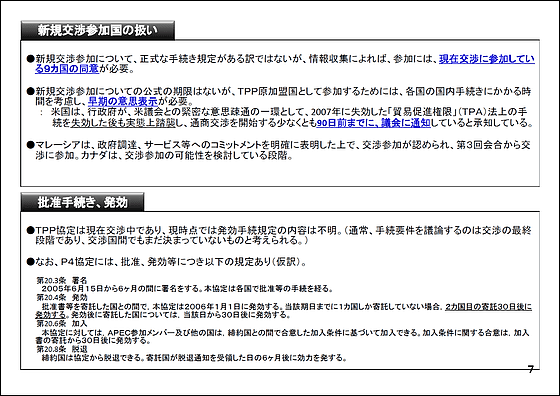
The following three points are important.
· The agreement of all nine countries is necessary to participate in the new TPP negotiations
"Regarding the participation of new negotiations, there is no formal procedure provision, but according to information gathering, participation requires the consent of nine countries currently participating in negotiations." However, actually you can understand by reading the following sentence, but it depends on whether one country says "yes".
· Early manifestation of intention is required to participate in the new TPP negotiations
"There is no official deadline for participation in new negotiations, but in order to participate as a TPP original member country, consideration is given to the time taken for domestic procedures of each country, early intention to express intention is necessary", but in fact "The United States continues to follow the actual situation even after the administrative agency has lost the procedures under the" Trade Promotion Authority "(TPA) Act, which expired in 2007 as part of close communication with the US Congress, We are aware that we are informing Congress by at least 90 days before we start, "the question is whether America says" yes "is the biggest point. It will take 90 days to say "yes", so if you decide to participate in the TPP negotiations right away, it will only be added to the negotiation table from February 2012 in three months from now.
· The content of the effective procedure provision is unknown
"The TPP agreement is currently under negotiation, and the contents of the procedure for entry into effect are currently unknown at this point. (It is normally considered that it is the final stage of the negotiations to discuss procedural requirements, and it has not been decided among negotiating countries yet. ) ", And the disadvantage of not having a strong intelligence agency or intelligence agency is blatantly mentioned from this sentence as" the fact that the fact is not sure what is actually what is what "is the state of the government.
Furthermore, the US is accelerating the air that "I will not make it in time soon", I am applying pressure on the Japanese noble phenomenon to the Japanese government, but even if expressing participation in the TPP negotiations in the first place, "negotiation can not be done at all" possible There is also sex.
November 2, 2011 07: 03: Tokyo newspaper: TPP rule claim difficult to rice "half a year to approve participation": economy (TOKYO Web)
http://www.tokyo-np.co.jp/s/article/2011110290070328.html
In regard to the negotiations on the Pacific Pacific Partnership Agreement (TPP), a senior US Treasury Department (USTR) will need informal consultations with the US government and Congress in order to allow Japan to participate, It is becoming difficult to accept, "according to the internal document of the Japanese government. Together with formal talks, it is expected that about half a year is needed to obtain approval for participation by the US Congress. Even if expressing early participation, there is also the possibility that it will not be able to substantially participate in the rule formulation task scheduled to be summarized next summer It was.
It is a situation where the preconditions of TPP promoter's claim that it is necessary to participate early in order to obtain favorable conditions in Japan.
The reason for why participating in TPP early and negotiating it is summarized on the right side of the figure below as "feature of TPP".
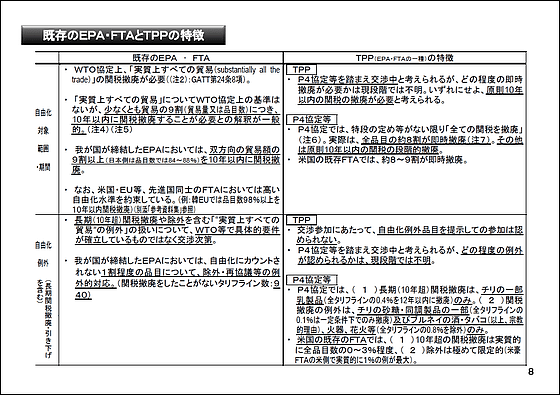
Looking at the scope of trade liberalization, that is, the scope of "not subject to customs duties" and the period of waiting for years to avoid tariffs, TPP case is afraid that "negotiations are considered based on the P4 agreement etc. Although it is unknown at this stage how much immediate elimination is necessary, in any case it is considered necessary to eliminate tariffs within 10 years in principle. "In the P4 agreement, which is the predecessor of TPP, all items 80% is "Immediate elimination"Has become.
However, in order to protect domestic industries, "exception" should normally be accepted, but in TPP "Participating in negotiations is not allowed to participate by presenting liberalized exception items"It is thought that negotiations based on the P4 agreement etc. are under negotiation, but it is unknown to what extent exceptions are recognized at the present stage", and in short it is basically just saying "to participate in negotiation" The right to tariff will disappear ". The Japanese government is thinking sweetly, saying "I do not think any exception will not be accepted, common sense, ... ...", but even without the information on whether or not an exception is accepted in the first place, To participate, there is no other choice but to participate, the exception of customs duties will not be automatically accepted once the participation is expressed, just the "Trap of the Komei" state. Going hell, going back to being in hell.
"Hell waiting, returning, returning to hell, it should be funny, there is no disadvantage even if you do not participate", but the following figure shows the major regional economic partnership in the world, that is, eliminating tariffs among member countries Of the countries that are actively engaged in trade by implementing the measures in the previous section.
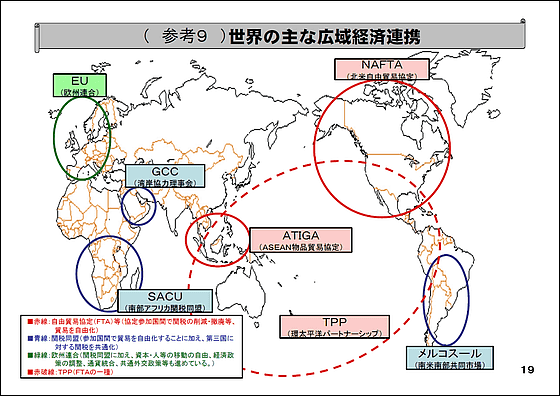
The meaning of the color of each line is as follows.
Red line: Free trade agreement (FTA) etc. (Liberalization of trade such as reduction / abolition of tariffs among agreement participating countries)
Blue Line: Customs Union (In addition to liberalizing trade among participating countries, tariffs on third countries are common)
Green line: European Union (In addition to Customs Union, freedom of movement of capital and people, adjustment of economic policy, currency integration, common foreign policy etc. are also being promoted)
Red dashed line: TPP
The red line deals with tariffs only, the blue line further develops from the red line to make the tariff rate common, the green line EU will further develop from the blue line to make it more violent and common currency integration and foreign policy It has reached the point of conversion. Because the country is large and huge Russia and China are basically strong, it is better not to liberalize trade, it is possible to take an isolated strategy. Meanwhile, although Japan is ranked as a major economy, it is not strong enough to maintain an isolated strategy, but it is a state of "what to do" even if you try to form a hand with somewhere.
In other words, each of these camps is struggling to survive their own survival from the viewpoint of "global strategy", and "TPP" is one of its camps, but this TPP is " It is not something that you can say that you do not know, "Do you know?Actually affect our livesThing. Although "Lehman shock" was supposed to be the feeling "at first the shock over the ocean was what?", I understood later that Japan is not irrelevant. The "TPP" this time is similar, next time I will look at this "TPP" with a slight micro viewpoint.
◆ "TPP" influences every Japanese life
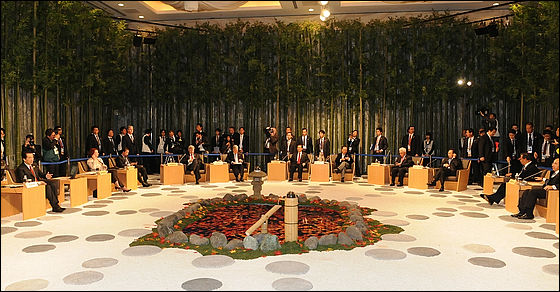
ByGobierno de Chile
Furthermore, the PDF file on the official site of the "National Strategy Office" of the Japanese government "Situation by TPP agreement negotiation by field (October 2011)I can understand how this TPP covers a wide range of things, it is possible to understand how the TPP covers a wide range of items, such as agriculture and forestry fishery such as rice and agricultural crops insisting on existing mass media, industrial products such as automobiles It not only makes sense that it affects all kinds of Japanese industries.
Cabinet Secretariat, Cabinet Office, Fair Trade Commission, Financial Services Agency, Ministry of Internal Affairs and Communications, Ministry of Justice, Ministry of Foreign Affairs, Ministry of Finance, Ministry of Education, Culture, Sports, Science and Technology Ministry of Health, Labor and Welfare Ministry of Agriculture, Forestry and Fisheries, Ministry of Economy, Trade and Industry, Great number and breadth of the relevant ministries and agencies alone.
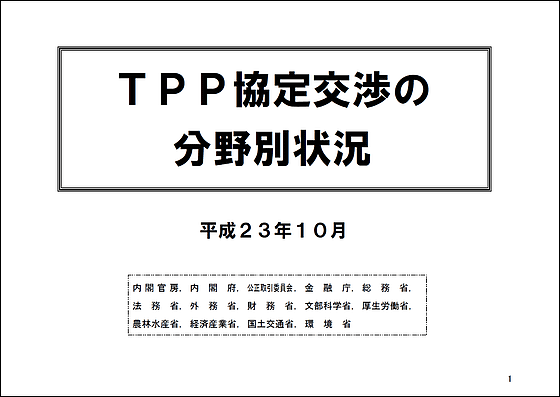
"This material is prepared by cooperation and coordination based on the information gathered through consultation with the TPP agreement negotiating country, etc. by the related ministries concerned in the country", and as a field there are 21 It is possible to summarize in the field.
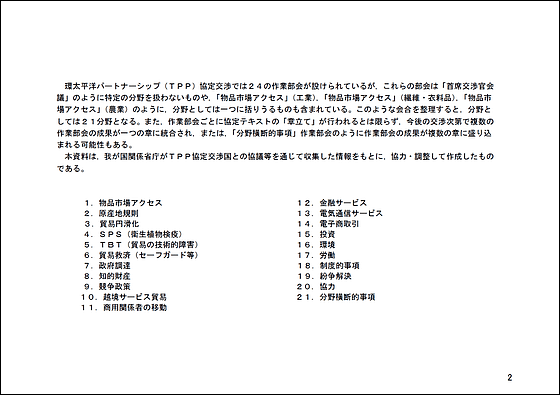
The following are the 21 fields.
1. Access to goods market
2. Rule of origin
3. Trade facilitation
Four. SPS (sanitary plant quarantine)
Five. TBT (technical obstacle of trade)
6. Trade relief (safeguard etc.)
7. Government procurement
8. intellectual property
9. Competition policy
Ten. Cross-border service trade
11. Movement of commercial personnel
12. Financial services
13. Telecommunication services
14. E-commerce
15. investment
16. environment
17. Labor
18. Institutional matter
19. Dispute resolution
20. Cooperation
twenty one. Cross-sectional matters
As it is indeed a wide and comprehensive content, it seems that there is already a sense of crisis at least at the bureaucratic level at the stage of making this material as expected, and as shown below, "When considering participation in TPP agreement negotiation What we should consider as Japan "is that" the main rule that Japan wishes to secure "which is the merit of Japan and" the main point that may require a careful consideration for our country as a disadvantage of Japan " It is divided into two parts.
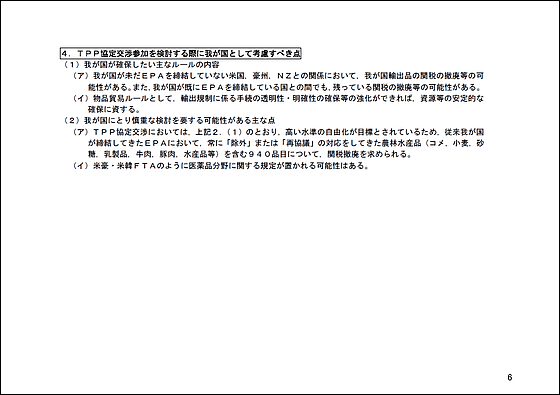
As a disadvantage "940 including agricultural, forestry and fishery products (rice, wheat, sugar, dairy products, beef, pork, fishery products etc) that have always responded to" exclusion "or" reconsideration " "It is written that there is a possibility that regulations on the pharmaceutical field will be placed like the US-Australia-US-Korea FTA", and it is said that it is very bad to take the TPP as it is It seems that the truth knows as expected.
Also, as I said earlier, "If you join in order to know what kind of negotiation is being done you will not be able to automatically raise tariff exceptions", so the TPP's predecessor, the "P4 Agreement" Summarizes the contents of the agreement that the United States has connected with other countries, and makes a speculation that "TPP's contents probably will be like this".
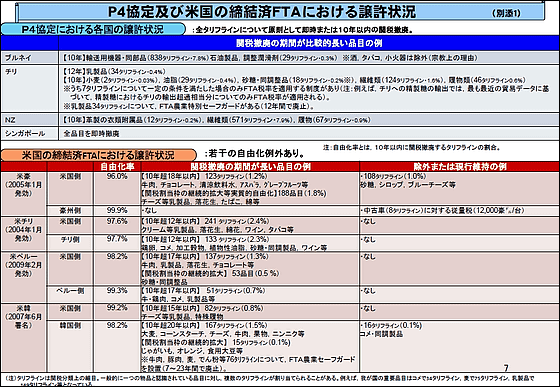
It seems that we are correctly recognizing that it is correct as for "the merit and disadvantage of Japan by negotiating the TPP agreement" and it is quite accurate as shown below.
For example, Kore is concerned with regulations concerning the display of "Origen".
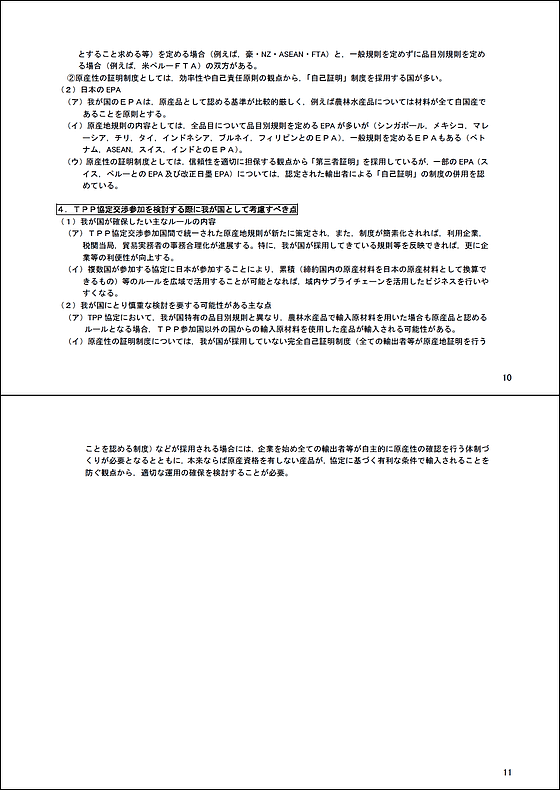
As a disadvantage of TPP, "When importing raw materials are used as agricultural, forestry and fishery products, unlike regulations by item specific to our country, products that use imported raw materials from countries other than TPP participating countries are imported There is a possibility that it may be done. "Regarding the certification system of originality, if a completely self-certification system that Japan does not adopt (a system that allows all exporters to do certificate of origin) etc. is adopted , It is necessary to create a system that all companies and other exporters voluntarily confirm the originality and that products that do not originally have qualification originally will be imported under favorable conditions based on the agreement From the viewpoint of preventing it, it is necessary to consider securing appropriate operation ".
in short,"Food of unknown origin comes from where it is a country of origin"Since the company prove somewhere of origin, the small scale without the power to prove to be compromisedThat's why. The idea that the strong man pros further and flourishes and the weak person should perish appears in the TPP in an extreme form, which applies to all the examples in the future.
The next relates to "SPS (sanitary and phytosanitary)" which is a measure for securing food safety and preventing animals and plants from getting sick.
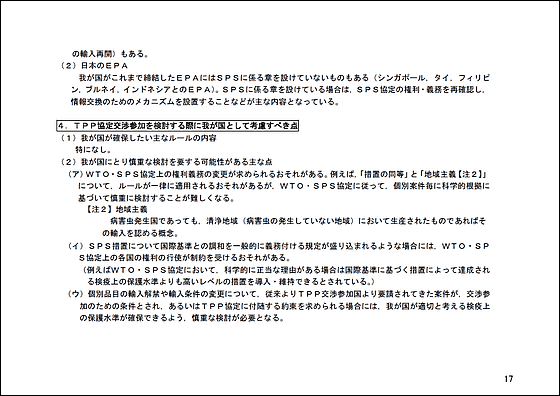
There is no merit of TPP for Japan at all, and the disadvantage is that "regionalism" is adopted. Regarding what is regionalism, it is "a concept that permits importation if it is produced in a clean area (a place where pests do not occur)" even if it is a pest occurrence country. For example, in the case of "Foot - and - mouth disease" which brought a great blow to Miyazaki's livestock, another neighboring district has not occurred yet OK! That could mean that. It is written that "it will be difficult to carefully consider each project based on scientific basis"Without scientific basis, it may be imported to Japan with a judgment of "It's OK because it is a different area"That's why.
Furthermore, if the projects requested by participating countries of TPP negotiations have been regarded as conditions for participation in negotiations or promises accompanying the TPP agreement are required for the lifting import ban on individual items and changing import conditions , Careful consideration is needed so that the level of quarantine protection that we consider appropriate is secured ". In short, we can lower the standard of food protection in Japan. Because quarantine and inspection at the current Japanese level cost money. If quarantine and inspection can be done properly, it becomes cheaper by that amount, and tariffs also disappear, so the places where it produces more cheaply and appropriately and cheaply is won! It is a chart.It is a rule that can not win with Japanese method of maintaining qualityThat's it.
Although you can see that it is quite obvious just by looking at this point, "intellectual property" on copyright is also outrageous.
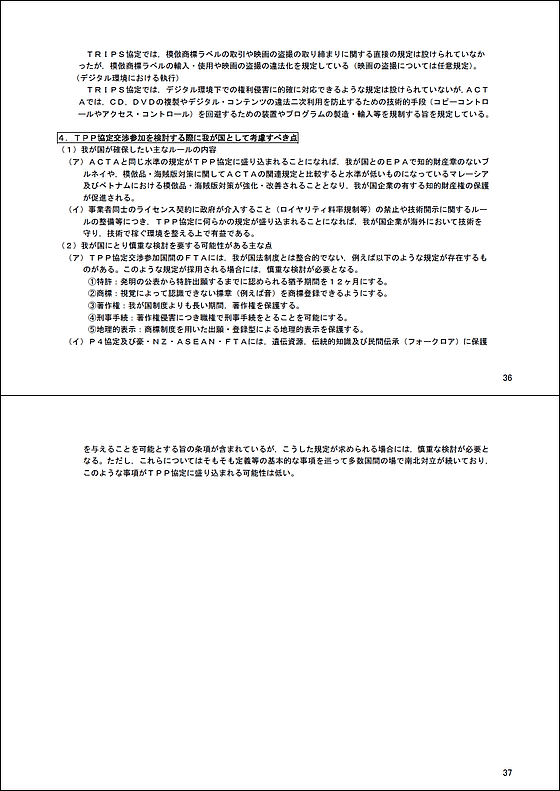
The following are the contents of 5 major disadvantages for Japan.
Patent: The grace period allowed from publication of the invention to patent application is set to 12 months.
Trademark: To be able to register trademarks (eg sounds) that can not be recognized visually.
Copyright: Protect copyright for a longer period than the Japanese system.
Criminal Procedure: allowing criminal proceedings to be exercised on copyright infringement ex officio.
Geographical indication: Protect geographical indication by application / registration type using trademark system.
Disregarding all consumers, especially easy to understand is "copyright", in other words Disney is desperately deferred when the copyright protection period of Mickey Mouse is about to expire, It is alleged that it will become "to approve the copyright forever" among other things as it is. In addition, "criminal procedure" means that the copyright holder will be able to arrest arbitrarily for "download illegalization" even if there is no intention of the copyright owner to appeal, not only is there a lot of false charges occurred , Further uneasy deployment is expected, the following article is very detailed.
Will TPP change the copyright of Japan to the US? - Extended protection period, non-petty, statutory damages - INTERNET Watch
http://internet.watch.impress.co.jp/docs/special/fukui/20111031_487650.html
"Non-petty" is a criminal matter, but copyright infringement has civil responsibility such as compensation for damages. A related request is "introduction of statutory damages" (claim 12.4). Perhaps this is big with the short-term impact when it is introduced in earnest.
What is "statutory damages"? Regular damages are paid for copyright infringement only for actual damages suffered by right holders and others. Usually not much money, often not enough for attorney fees. There seems to be a general impression that Japan's copyright is tough, but in reality this is due to this compensation price, most copyright infringement has not ended in litigation. From the point of view of the rightful owner, it is "crying overnight". (Actually, there are rules to supplement the principle of "actual damage", but this is the current situation including that)
"Statutory damages" is a system in which the court can decide the amount of compensation (including penalty elements) even if there is no proof of actual damage, in the case of intentional infringement in the United States per "work" $ 750 to $ 150,000. Indeed it is over 10 million yen.
This is one reason why there are many intellectual property lawsuits in the United States, and the amount of compensation increases from Japan compared with Japan. If the US type "statutory damages" is introduced, intellectual property lawsuits may increase dramatically in Japan better or worse.
This includes not only this but also the provision that "it is possible to give protection to genetic resources, traditional knowledge and private folklore (folklore), but if these provisions are required, careful consideration It is written that it is necessary "and it surely becomes messed up.
◆ What is the future plan for "TPP"?
Regarding TPP, what kind of schedule is planned in the future is described in the PDF file "General overview of TPP negotiations (October 2011)It is written in.
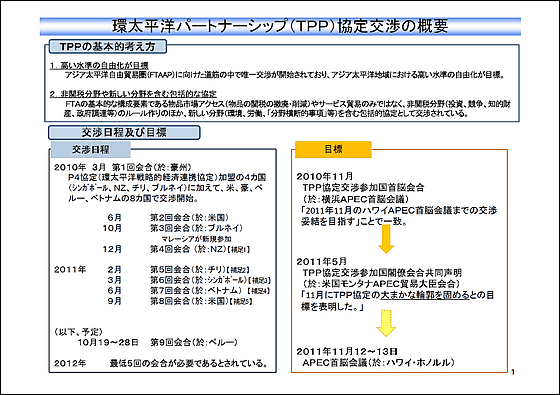
The negotiation schedule is already over until the 9 th round, and to a certain extent at least 5 times in 2012. Since it is 9 times + 5 times 14 times, it has already been decided that it is not less than half and not more than two thirds, and further Japan will negotiate at the APEC summit meeting on Saturday 12th (Sat) - 13th (Sunday) Even if you declare that you want to participate in the event, as I said, it will take six months until the United States says "yes", so when Japan appears in the negotiating place, 90% of the people have already negotiated, or Is not it better to think that it is over? about it.
If you look at the fields to negotiate again, even if Japan can not participate right now without preparing anything, is there a possibility that you can negotiate so that it will be advantageous to Japan in all these fields?
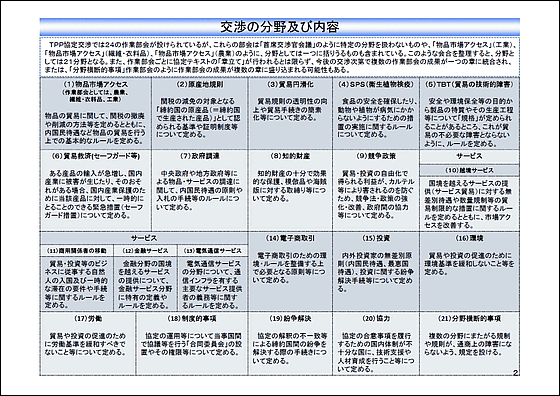
◆ What is "negotiation" in "TPP"?
Also, there is a description about what kind of state negotiations including the past in the past were like, but as far as this is seen, "As long as you do not participate in the present!", " It is clear that it is too late ". It seems better to think that it is already advanced to a considerable level, and even if you participate from now you are honest, it is impossible to think in common sense.
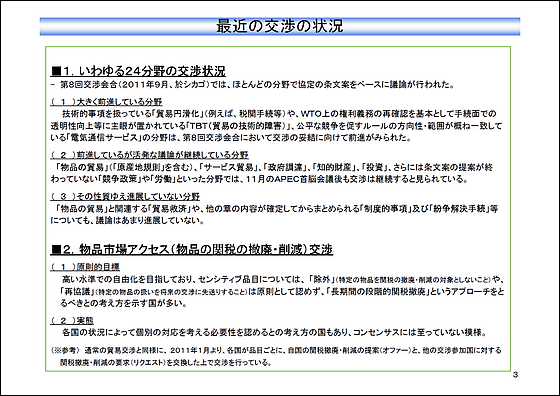
The following is the national strategy office that summarizes what we have pulled in searching for materials from here and there and we negotiate by adjusting and alternately repeating "offer" and "request" As you can tell that negotiation will be pretty high level.
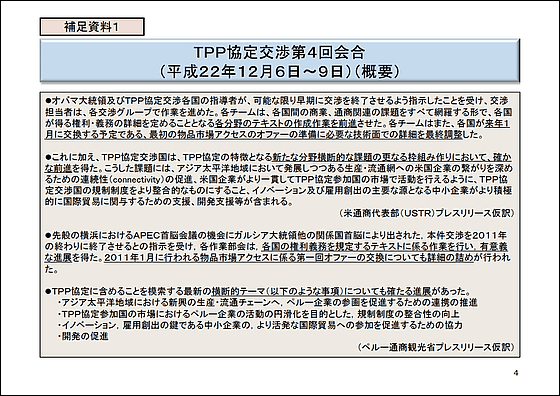
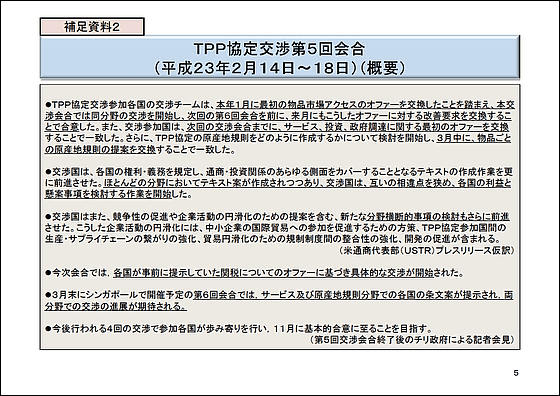
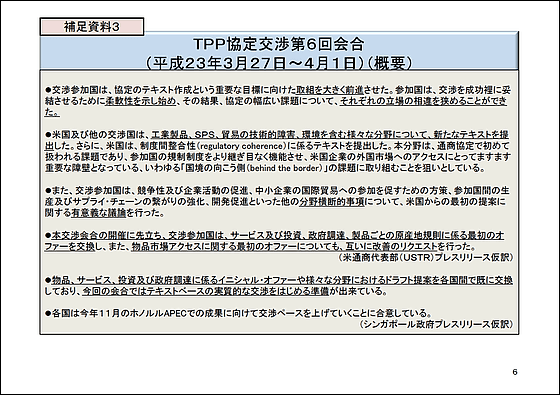
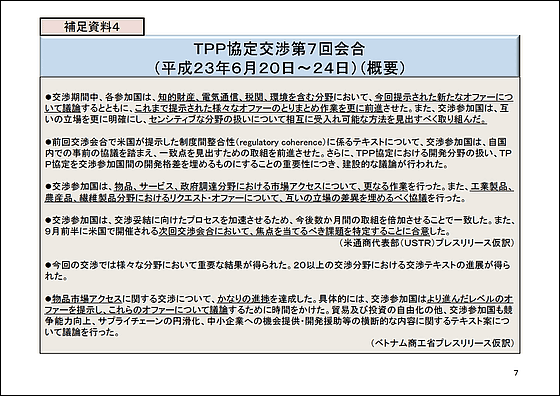
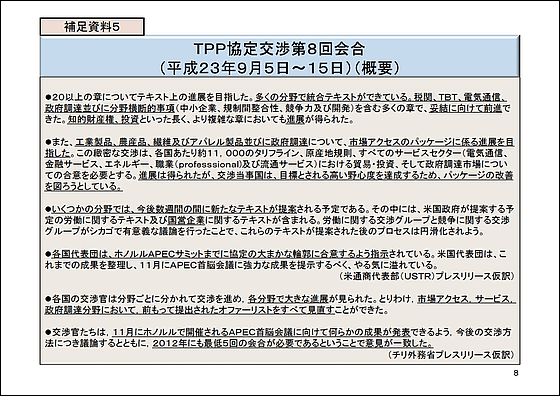
◆ There is no specific reason for Japan to participate in "TPP"
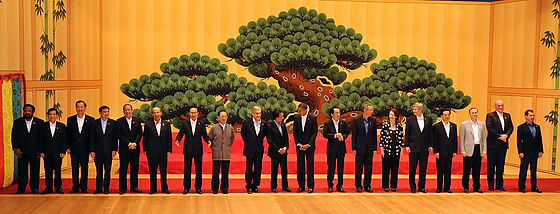
ByGobierno de Chile
For the reason why Japan is about to participate in TPP, please see the PDF file "Basic policy on comprehensive economic partnership (Japanese version)Once in a while, it is written as follows.
Furthermore, we actively promote bilateral EPAs with major countries / regions that are not yet in the EPA negotiations in the Asia-Pacific region, while trying to improve domestic environments. With regard to the Pacific Rim Partnership (TPP) Agreement, the only negotiations started in the path towards FTAAP, it is necessary to respond while proceeding with gathering that information and promote the improvement of domestic environments urgently, Start negotiations with the country.
Whatever you read it is not a reason, but there is a reason for that in the final "Economic Partnership Negotiation and Integral Implementation of Domestic Measures".
In order to strengthen the high level of economic partnership with major countries / regions, from the viewpoint of "opening the country", appropriate domestic reforms are advanced in the field of agriculture, people movement and regulatory system reform Promote.
Because it says "Open the country", it seems to be mistaken as "opening the country", but Japan is not isolated.
(1) Agriculture
In order to promote high-level economic partnership, improve food self-sufficiency rate in Japan, promote domestic agriculture and rural areas, and take measures to foster sustainable and strong agriculture, chaired by the Prime Minister, Establish "Agricultural Structural Reform Promotion Headquarters (tentative name)" with the Minister in charge and the Minister of Agriculture, Forestry and Fisheries as Vice-Chair, and decide the basic policy in June 2011. Furthermore, at the same headquarters, we will examine the necessary and appropriate fundamental domestic measures necessary for strengthening competitiveness, the fiscal measures necessary for countermeasures, and their financial resources, and will take action plans based on the medium- to long-term perspective in 2011 Formulate it on a monthly basis and implement it as soon as possible.
At that time, review the way of border measures such as tariff measures adopted on the premise of consumer burden to maintain domestic production, secure stable financial resources, if it is deemed appropriate, gradually We will consider transitioning to a more transparent taxpayer burden system by changing to fiscal measures.
"We reviewed the way of border measures such as tariff measures adopted on the premise of consumer burden to maintain domestic production"Perhaps it is related to TPP probably.
(2) People's movement
As to how to tackle issues related to people's mobility from overseas such as nurses and care workers, we will focus on promoting employment and human resources strategies listed in the "New Growth Strategy", while establishing the future of the domestic population structure We will consider trends, the impact on people's employment, requests from overseas, as well as ensuring the stability of Japan's economic development and society. We will set up a study group for that purpose under the Minister for State Strategy and formulate basic policies by June 2011.
"Considering future trends of the domestic population structure, the impact on the employment of the people, requests from overseas, as well as ensuring the stability of Japan's economic development and society"It is blatantly written as" request from overseas, "even though TPP is more dangerous than black ship, I misunderstand.
(3) Regulatory system reform
From the viewpoint that it opens the country, incorporates excellent overseas management resources to raise domestic growth potential, and enables active development of economic partnership, from the viewpoint of abolishing non-tariff barriers, administrative We decide concrete policy by March 2011 under the renovation meeting.
(that's all)
"We will increase the domestic growth potential by opening the country and incorporating excellent overseas management resources"And"Eliminate non-tariff barriersSo, as long as you see the current TPP situation, it is clearly contradictory that the conclusion reads well. In fact, there is not much relation between raising domestic growth potential by incorporating overseas management resources and eliminating non-tariff barriers, and further TPP has nothing to do with it.
What on earth is TPP, should not be interpreted merely by the above explanation. So, in the next article, we will look at the identity of what really happens at the back of the TPP.
· Continued
The identity of the black curtains promoting 'TPP' in the US to control the US government - GIGAZINE

Related Posts:
in Column, Posted by KeitoYamazaki

